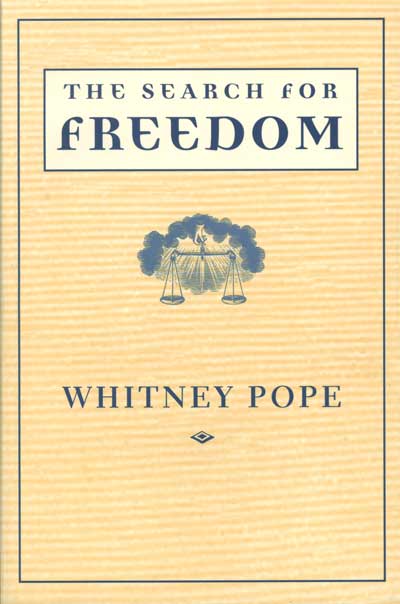
The Search for Freedom
Whitney Pope
“The theory of freedom assumes that unbalanced power inevitably becomes first arbitrary and then tyrannical. The only way to control power is to balance one power with another. In the modern world, a national government with a centralized administration represents the greatest potential concentration of power. Accordingly, the theory of freedom seeks to identify. . . . the groups and structures throughout a society whose own power balances that of the national government, preventing it from becoming tyrannical. In short, balanced power is a sine qua non of freedom.” —from the Introduction
In The Search for Freedom, Whitney Pope is interested in how the behavior of people in different times and in different circumstances, acting with and against one another in pursuit of a myriad of both durable and changing goals, has perpetuated freedom or undermined it. Part 1 addresses Tocqueville’s use of such concepts as authority, community, and decentralization in his analysis of freedom and order in Jacksonian democracy and during the French Revolution. Part 2 examines freedom in contemporary contexts by looking at large organizations: specifically, an American labor union and a large Japanese company. Part 3 turns to Sweden to assess the relationship between freedom and the modern welfare state. Pope’s conclusion uses the insights gained from these case studies to flesh out a theory of freedom. An original and timely text, The Search for Freedom will be welcomed by both teachers and students.
Whitney Pope is a professor of sociology at Indiana University
and the author of Alexis de Tocqueville: His Social and Political Theory.
|
Sep 1999
Sociology 224 pp. 6 x 9 |
|
| $36.95 paper 978-0-8142-5033-4 | Add paperback to shopping cart |


